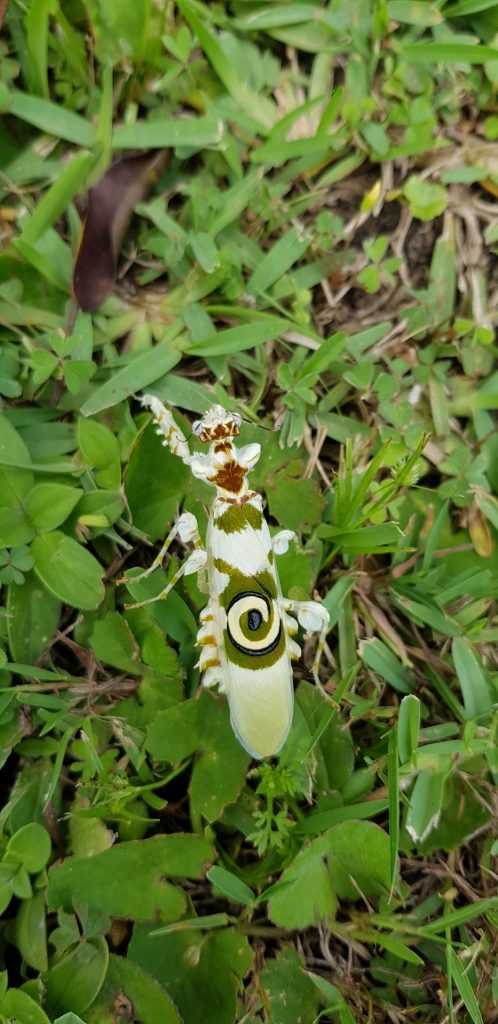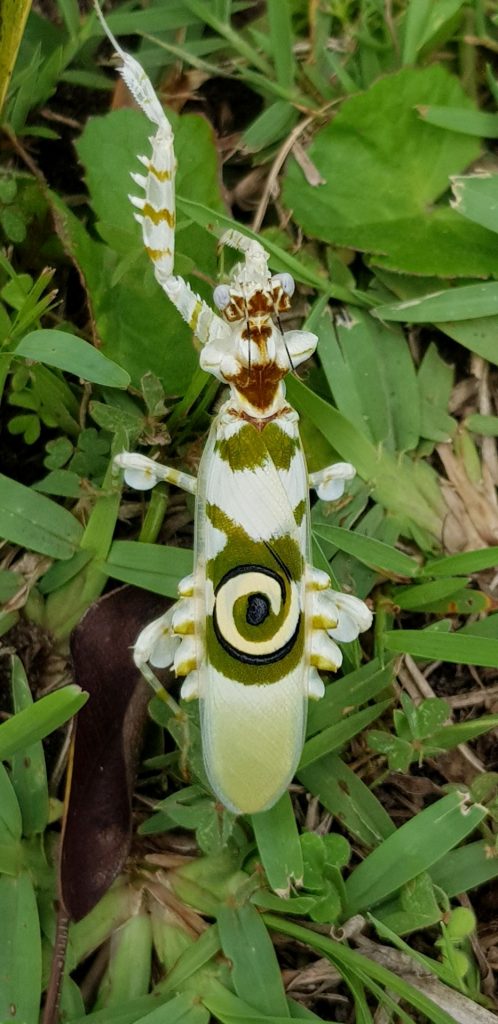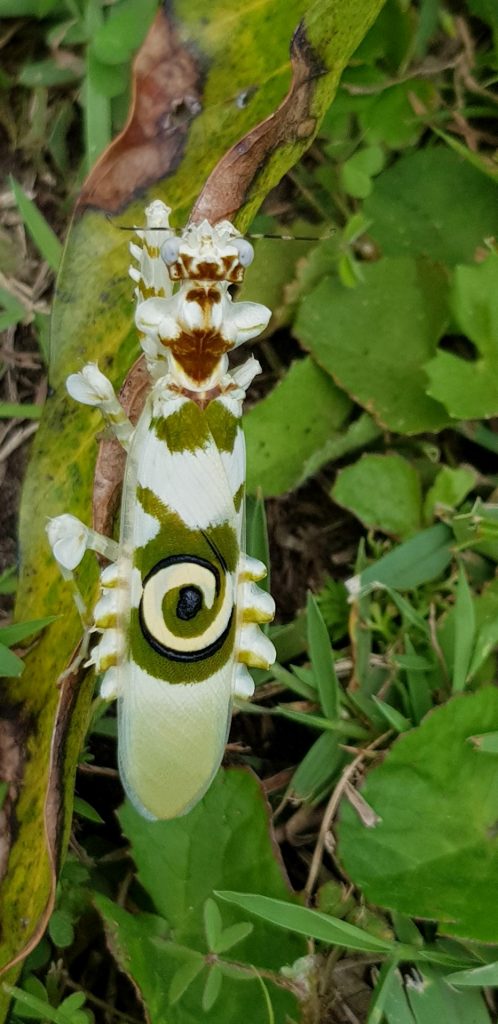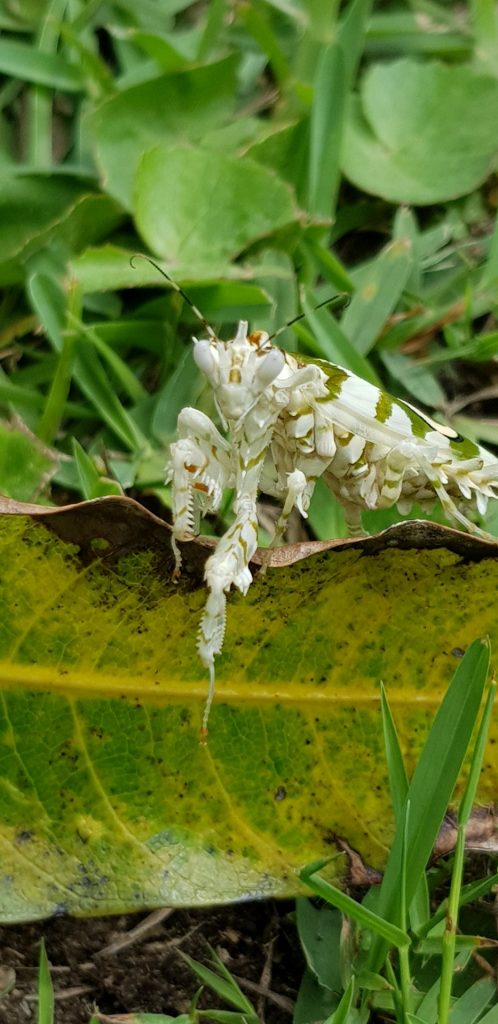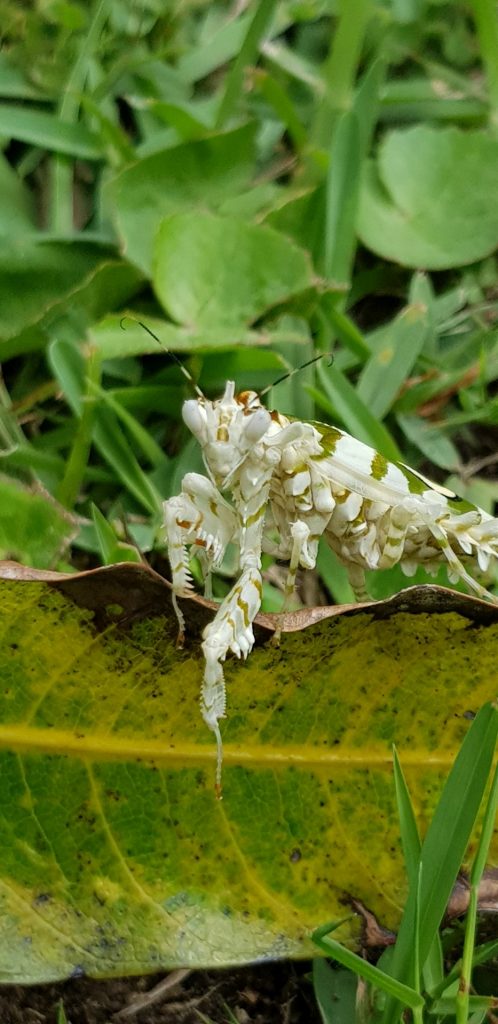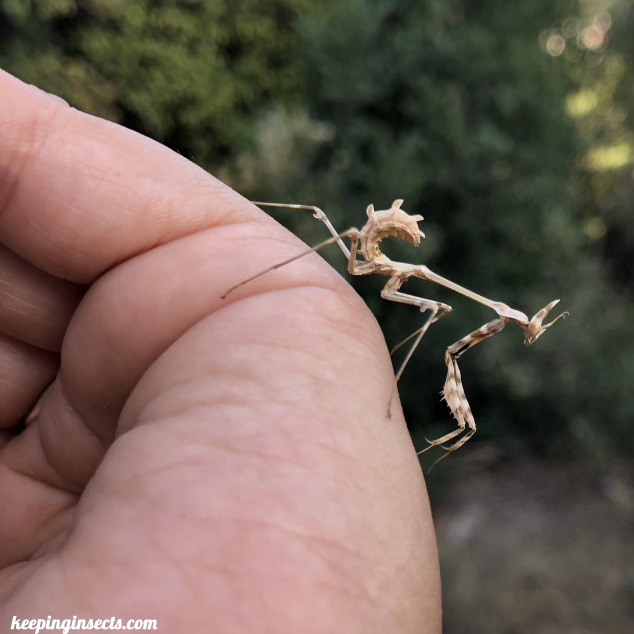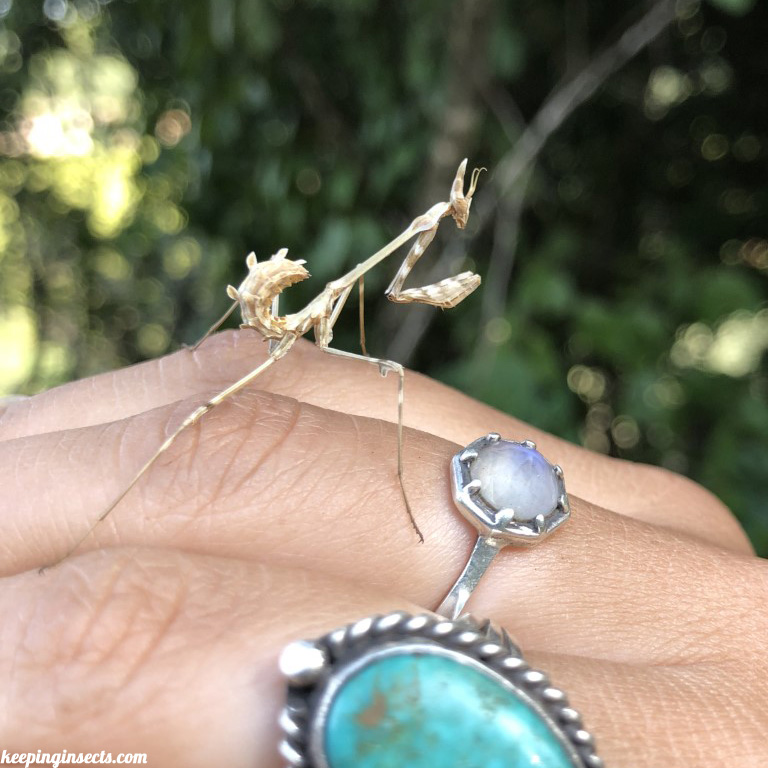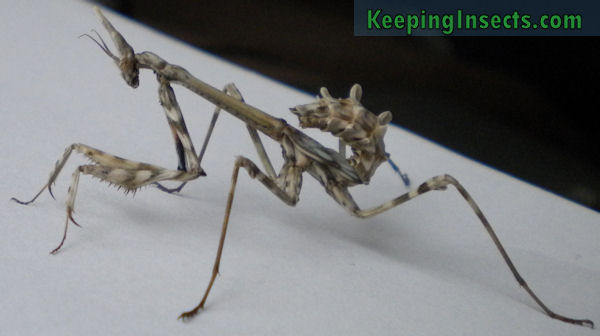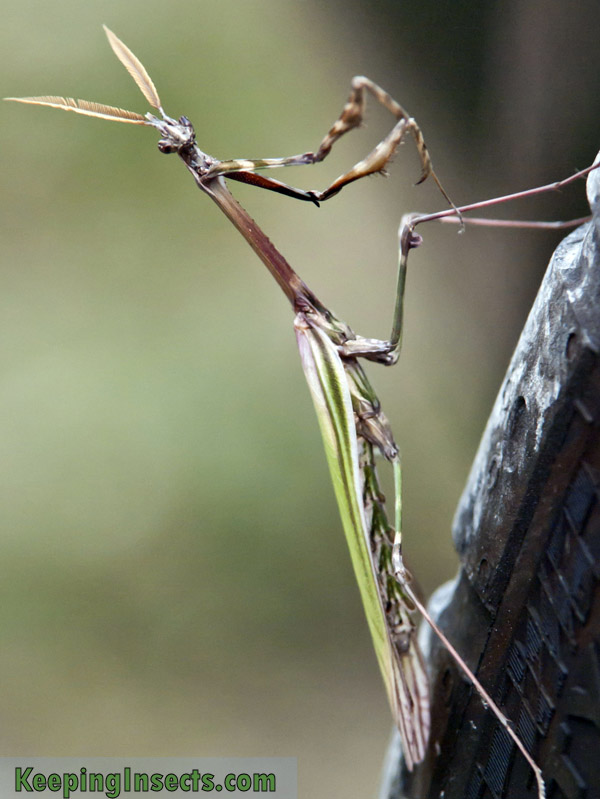I got a question to ID a mantis found in South Africa.
Good day Can you be so kind to tell me what species of mantis this is found it in my yard in Richardsbay it looks like the Indian flower mantis but this one has a different face and legs
Well it was a delight to email back what species it is, as the mantis is a very beautiful adult female Pseudocreobotra wahlbergii – Spiny Flower mantis. I wish I lived somewhere where these gorgeous insects would just show up in my yard.
With permission I am sharing the pictures that where taken before she was released back into the wild.
You can read more about this praying mantis species here: Spiny Flower Mantis. You can notice that the eyes of this mantis are very light colored, almost white, at daytime in the bright light, but turn purple in less bright conditions.

